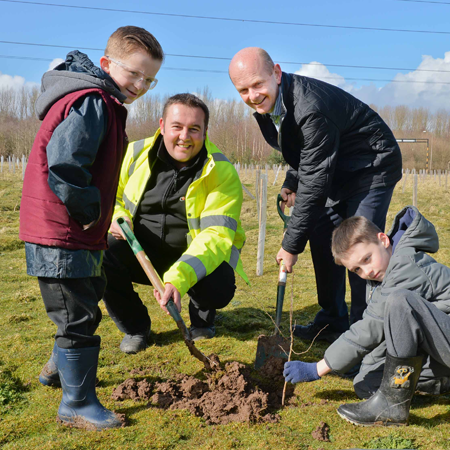We will make effective use of resources, minimise wastage and promote safe and ethical working practices. We will role model sustainable processes and practices within our business and the wider industry we represent, sharing with and learning from our own employees, our suppliers, customers and the local community. We will apply long-term sustainability thinking to the lifecycle of our employees, their wellbeing and the value of our products and practices.
Why is this important?
Providing maximum sustainable value through our working practices will future-proof our business. Setting an example in environmental responsibility and wellbeing will ensure our brand is credible and competitive, achieving longevity, return on investment and creating stakeholder value.


